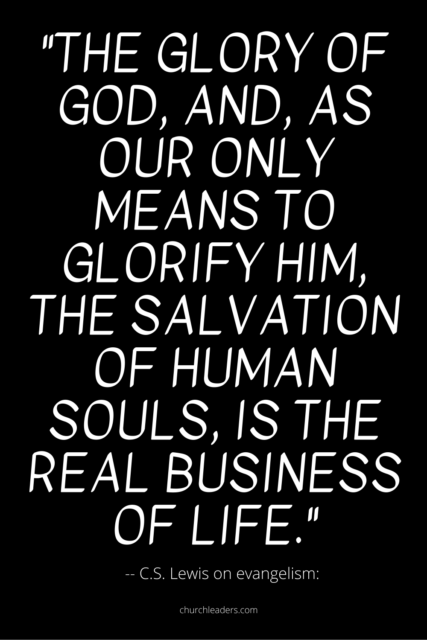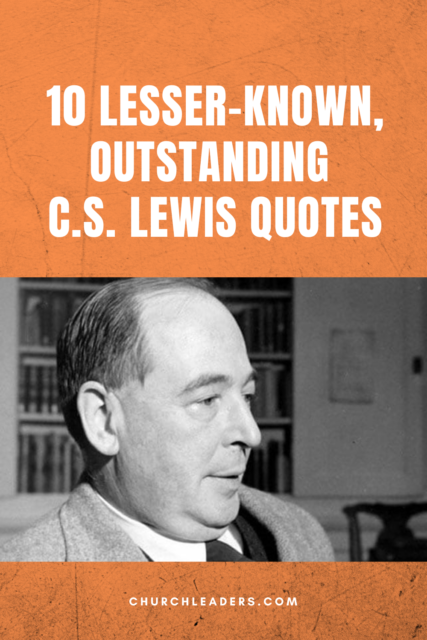You can find C.S. Lewis quotes anywhere, but too often pastors and writers use the same ones over and over, which is a shame because there are so many great quotes from him.
Here are some of our favorite (lesser-known) C.S. Lewis quotes:
- On being heavenly-minded:
“A continual looking forward to the eternal world is not a form of escapism or wishful thinking, but one of the things a Christian is meant to do.”
- On evangelism:
“The glory of God, and, as our only means to glorifying Him, the salvation of human souls, is the real business of life.”
3. On convictions and rules:
“An individual Christian may see fit to give up all sorts of things for special reasons – marriage, or meat, or beer, or cinema; but the moment he starts saying the things are bad in themselves, or looking down his nose at other people who do use them, he has taken the wrong turning.”
4. On delighting in God:
“The Scotch catechism says that man’s chief end is ‘to glorify God and enjoy Him forever.’ But we shall then know that these are the same thing. Fully to enjoy is to glorify. In commanding us to glorify Him, God is inviting us to enjoy Him.”
5. On evolution:
“If the solar system was brought about by an accidental collision, then the appearance of organic life on this planet was also an accident, and the whole evolution of Man was an accident too. If so, then all our present thoughts are accidents- the accidental by-product of the movement of atoms. And this holds for the thoughts of the materialists and astronomers as well as for anyone else’s. But if their thoughts are merely accidental by-products, why should we believe them to be true? I see no reason for believing that one accident should be able to give me a correct account of all the other accidents.”
6. On God as Father:
“We want, in fact, not so much a father in heaven as a grandfather in heaven: a senile benevolence who, as they say, “liked to see young people enjoying themselves” and whose plan for the universe was simply that it might be truly said at the end of each day, “a good time was had by all.”
7. On the material world:
“There is no use trying to be more spiritual than God. God never meant man to be a purely spiritual creature. That is why He uses material things like bread and wine to put the new life into us. We may think this rather crude and unspiritual. God does not: He invented eating. He likes matter. He invented it. I know some muddle-headed Christians have talked as if Christianity taught that sex, or the body, or pleasure, were bad in themselves. But they were wrong. Christianity is almost the only one of the great religions which thoroughly approves of the body – which believes that matter is good, that God Himself once took on a human body, and that some kind of body is going to be given to us even in Heaven and is going to be an essential part of our happiness, our beauty, and our energy.”
8. On preaching heaven and hell:
“I know that many wiser and better Christians than I in these days do not like to mention heaven and hell even in a pulpit. I know, too, that nearly all the references to this subject in the New Testament come from a single source. But then that source is Our Lord Himself… These overwhelming doctrines…are not really removable from the teaching of Christ or of His Church. If we do not believe them our presence in this church is great tomfoolery. If we do, we must sometime overcome our spiritual prudery and mention them.”
9. On family:
“God gave us family. And what a precious gift! But it is a gift, not the Giver. Jesus will not allow Himself to be demoted to High Priest in the Temple Of Family Values. When we come to Christ, we leave that Temple behind, never to return, and we spend the rest of our lives recruiting our families to worship Jesus.”
10. On tested faith:
“You never know how much you really believe anything until its truth or falsehood becomes a matter of life and death to you.… Only a real risk tests the reality of a belief.”



